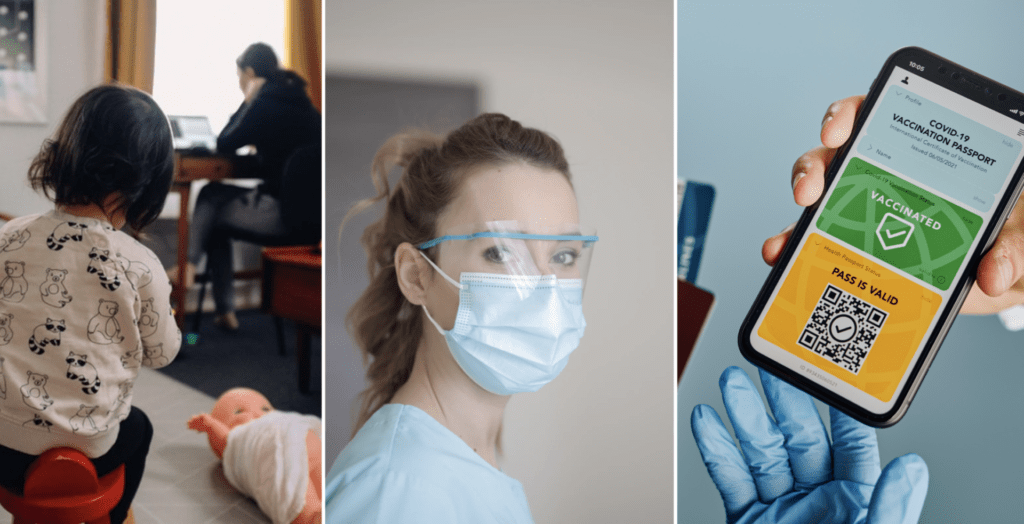As the coronavirus situation in Belgium continues to worsen, the government has announced that new measures to curb the rise in infections will come into force from 7:00 AM on Saturday 20 November.
The number of coronavirus infections in Belgium at the moment is rising while hospitals, which are already burdened by staff shortages, are being overwhelmed by Covid-10 hospitalisations.
On Wednesday, Belgium's Consultative Committee announced that the new measures listed below are intended to avoid having to take more drastic ones at a later point, as Austria has decided to do.
Face masks
Face masks will now be compulsory for everyone age ten and above (instead of from the age of 12). They will be required in places where over-12s were already obliged to wear face masks, including in shops, shopping centres, libraries, cultural and sports venues, places of worship, and public transport, among others.
“We are going towards a very broad face mask obligation,” De Croo said during the press conference to announce the measures. “This includes indoor areas, but also at events if they take place outside.”
Belgium is also introducing a so-called Covid Safe Ticket+ rule, meaning that the face mask obligation will also be extended to all places where a Covid Safe Ticket (CST) is currently required.
This means in businesses in the catering industry (bars, restaurants, cafes) when not seated at a table, as well as at events (including Christmas markets), performances, sports competitions and conferences, irrespective of the number of people present, as well as private meetings inside from 50 people and outside from 100 people.
Nightclubs, discos and dance halls that do not want to apply compulsory face masks must require a self-test at the entrance, on top of a valid CST.
"It remains strongly recommended to wear a mouth mask when it is impossible to respect the rules of social distancing," Verlinden's cabinet stated.
Working from home
Teleworking will be compulsory four days a week until 12 December, for all companies, "unless this is impossible due to the nature of the function or the continuity of the business, activities or services." No more than 20% of all staff who are required to work from home can be in the office at one time.
From 13 December, the obligation will be scaled down to three days a week. During the office days, a maximum of 40% of the staff can be present at one time.
Employers who do not abide by these rules can be reported via the website of Belgium's Federal Public Service for Employment, Labour and Social Dialogue.
Public and private gatherings
Public events, including Christmas markets, cultural and other events, as well as private meetings with up to 50 attendees inside or 100 people outside can be organised without the CST measure, however, face masks must be worn and social distancing must be observed when possible.
Organisers can choose to use the CST, even if the number of attendants is under these thresholds.
The number of guests can be exceeded when the CST is being used, however, wearing a face mask will remain mandatory.
Related News
- 'Stop pointing fingers': De Croo defends new measures
- 'Too little, too late': experts divided on Belgium's latest measures
"The virus variant we are seeing today is three times more infectious than the one that initially emerged. All alarm signals are red. That is why we are taking broad measures. Measures everyone can follow, so we can avoid another lockdown," Prime Minister Alexander De Croo said.
All measures have been included in the Royal Decree and will enter into force from 20 November until 28 January 2022, just like the already existing measures that were not changed.
However, the epidemiological conditions will be closely monitored and the Consultative Committee will make a new assessment in early January, according to Home Affairs Minister Annelies Verlinden’s cabinet.

